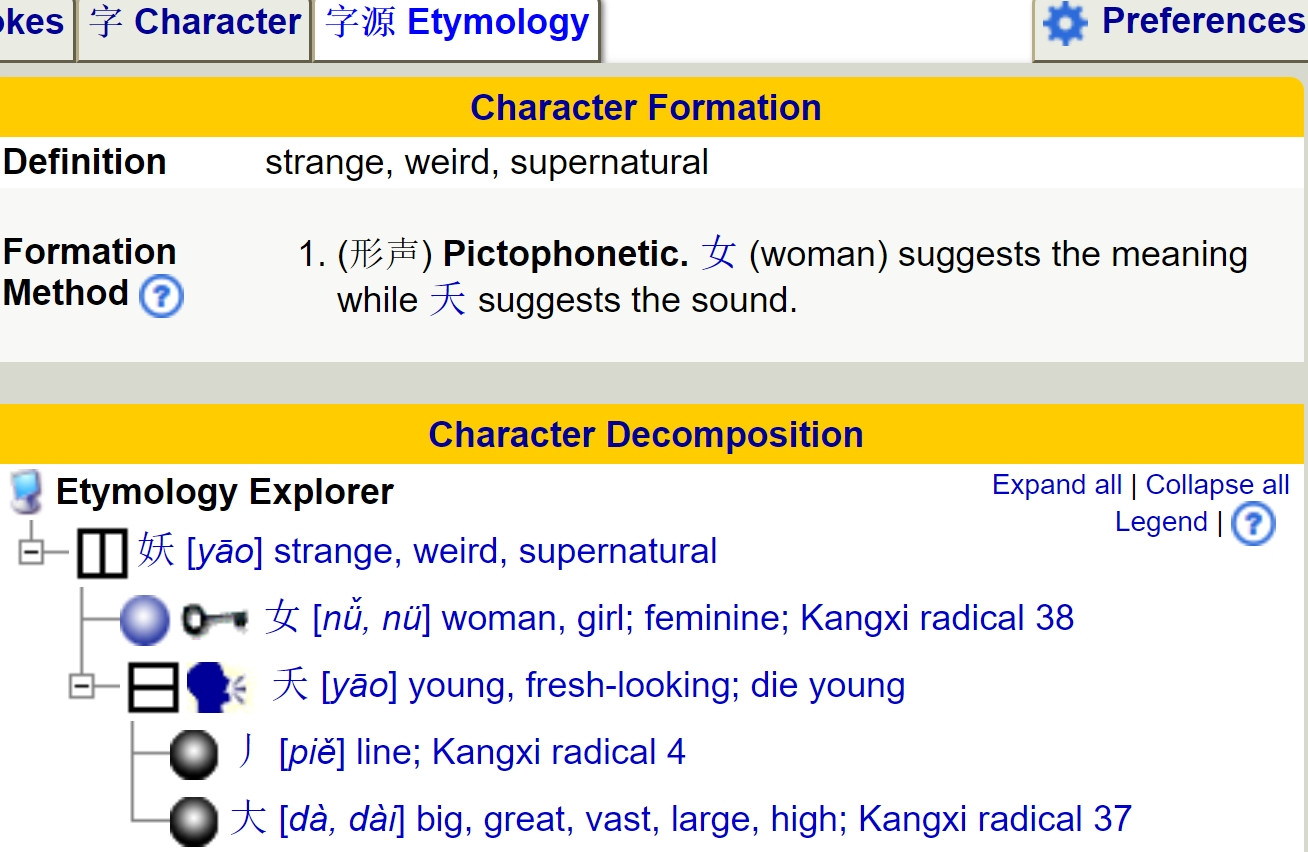Here is the entry for 妖 from the Outlier dictionary:
FORM
妖 yāo is composed of 夭 yāo (also yǎo) and 女 “woman; female; people in general,” pointing to the original meaning “gorgeous, lovely.” 夭 gives the sound.
COMPONENTS
女
In 妖, 女 “woman; female; people in general” is a meaning component, pointing to the original meaning “gorgeous, lovely.”
夭
In 妖 yāo, 夭 yāo (also yǎo) is a sound component.
MEANINGS
Character meanings
yāo
1 (orig.) gorgeous, lovely
2 → seductive, bewitching
3 ⇒ witch
4 ⇛ devil, demon
5 ⇛ weird, strange
The meaning tree is especially helpful for seeing how word meanings evolved over time. They also cite a reference for this work:
王力 主編,2000《王力古漢語字典》,北京:中華書局,2007年重印。p. 189
The reference might have more of the same if that is what you are looking for.
To answer your other question: 男 is very rarely used as a character component; if something were related to men, you’d more than likely see a 亻component instead. ⿰亻夭 does have its own character: 仸.

